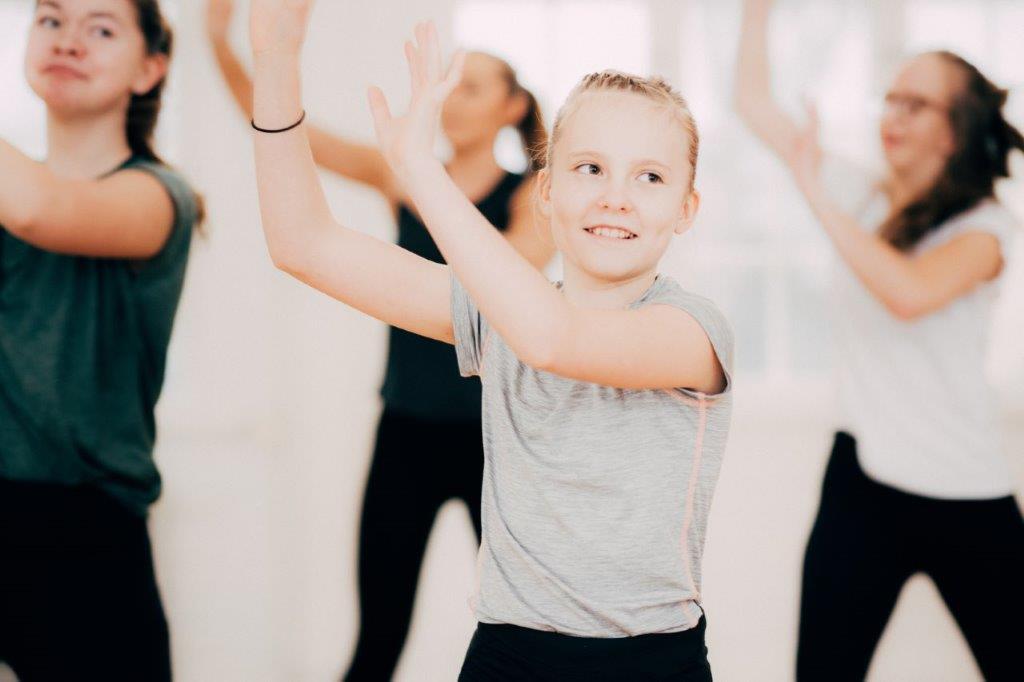Just-In-TIME - Intervention with combined dance and yoga for girls with functional abdominal pain disorders
About this project
Project information

Photo: delafoi.cc
The research project Just-In-TIME (JiT) evaluates effects and experiences of an intervention with regular combined dance and yoga in a group setting, for girls aged 9-13, with Functional Abdominal Pain Disorders (FAPDs). The main symptom of FAPDs is abdominal pain, often associated with depressive symptoms, reduced quality of life and school absence. The world-wide pooled prevalence of FAPDs among school-age children is 13.5% and higher in girls than in boys. Abdominal pain during childhood has been shown to be a predictor of serious mental illness in adulthood, which makes it important with early and effective treatments. More research is needed in this field.
The JiT-study is a randomized controlled trial (RCT) including 121 participants. The participants were mainly recruited from outpatient clinics at the university hospital pediatric departments in Region Örebro County and Region Västmanland. The intervention was offered 2 times a week for 8 months and each intervention session combined dance and yoga, including relaxation. The focus in all JiT sessions was to stimulate joy of movement, playfulness and relaxation in a supportive and positive atmosphere (1). The intervention proved to be feasible and appreciated. More than half of the participants attended 50-100% of the JiT-sessions during the eight months. Scientific quantitative measures were carried out at baseline, after 4, 8, 12, 24 months, and after 5 years. The control group was asked to live as usual and was offered participation in dance and yoga after the 24-month follow-up.
The results showed that the intervention group had a substantial effect regarding reduction of average maximum abdominal pain, measured by the Faces Pain Scale Revised in a pain diary, compared to the control group at the end of the intervention (2). The health economic analysis suggests that the JiT-intervention might be a cost-effective intervention for girls with recurrent abdominal pain, both in the short (12 months) and long term (10 years), based on small increases in quality of life and lower societal costs for the intervention group in comparison to standard health care (3). Analysis of cortisol levels showed a significant improvement at 4-month follow-up but not at 8-month follow-up (4). The qualitative analysis showed that the participants experienced the JiT-intervention as "A source of empowerment and well-being which facilitated personal growth and new ways of engaging in life" (5). Analysis of several secondary outcomes, such as pain frequency, somatic symptoms, depressive symptoms, quality of life, attendance in school and faeces, is ongoing.
- Philipson A, Särnblad S, Ekstav L, Eriksson M, Fagerberg UL, Möller M, Mörelius E, Duberg A. An Intervention With Dance and Yoga for Girls With Functional Abdominal Pain Disorders (Just in TIME): Protocol for a Randomized Controlled Trial. JMIR Res Protoc. 2020 Dec 15;9(12):e19748.
- Högström, S., Philipson, A., Ekstav, L., Eriksson, M., Fagerberg, U. L., Falk, E., Möller, M., Sandberg, E., Särnblad S, Duberg A (2022). Dance and Yoga Reduced Functional Abdominal Pain in Young Girls: A Randomized Controlled Trial. European Journal of Pain, 26 (2), 336-348.
- Philipson, A., Duberg, A., Hagberg, L., Högström, S., Lindholm, L., Möller, M., Ryen, L (2023). The cost-effectiveness of a dance and yoga intervention for girls with functional abdominal pain disorders. PharmacoEconomics Open, 7 (2), 321-335.
- Areskoug Sandberg, E., Duberg, A., Lorenzon Fagerberg, U., Mörelius, E., Särnblad, S. Saliva Cortisol in Girls With Functional Abdominal Pain Disorders: A Randomized Controlled Dance and Yoga Intervention. Front Pediatr. 2022;10:836406.
- Högström, S., Eriksson, M., Mörelius, E., Duberg, A. “A source of empowerment and well-being”: Experiences of a dance and yoga intervention for young girls with functional abdominal pain disorders. Frontiers in Pediatrics, section Pediatric Gastroenterology, Hepatology and Nutrition. 2023;11: 1040713.
Research groups
Collaborators
- Evalotte Mörelius, Linköpings universitet
- Lars Ekstav, Region Örebro län
- Ulrika Lorenzon Fagerberg, Region Västmanland

